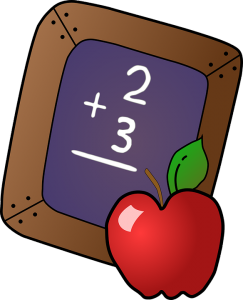 It’s the season when parents of incoming kindergartners register their children for school. For many parents, myself included, deciding which year children should start formal schooling is difficult.
It’s the season when parents of incoming kindergartners register their children for school. For many parents, myself included, deciding which year children should start formal schooling is difficult.
As kindergarten curricula become increasingly focused on reading, writing and math, more parents than ever before are holding their children back a year or “red-shirting” them. According to research, somewhere between 4 and 6 percent of children delay kindergarten. Typically, students who delay kindergarten tend to be white, male and not economically disadvantaged. The majority of students who delay have birthdays in July, August or September, meaning their birthdays fall close to the kindergarten cut-off date.
In fact, many parents who decide to delay kindergarten want to make sure their kids are emotionally ready to start school. Others don’t want their children to be the smallest in the classroom, or the least advanced. But what does the evidence say about the best time to start formal schooling?
It turns out, the data are inconclusive. In fact, the evidence about the best age to start formal schooling is often conflicting.
For starters, there is plenty of evidence that delaying kindergarten is better for kids. A longitudinal study conducted by Stanford University researchers of more than 90,000 families in Demark found that delaying kindergarten for one year reduced inattention and hyperactivity significantly among children, and those effects lasted through age 11. A similar study of a national representative group of U.S. kindergarteners found students who delayed kindergarten showed better social and emotional skills, but that these benefits disappear by middle school.
Another longitudinal study by Canadian researchers found starting kindergarten one year late substantially reduced the likelihood that students would repeat third grade and significantly increased math and reading scores among tenth graders.
A smaller study of only 55 students, all male, found that redshirted students showed significantly higher levels of life satisfaction in their adolescent years — grades 6 through 12 — compared students who did not delay kindergarten.
But, there is ample research that starting kindergarten at a younger age offers advantages too.
A nationwide study of more than 15,000 young adults published in 2006 found that kids who delayed kindergarten performed worse on 10th-grade tests, were twice as likely to drop out of high school, and were less likely to graduate from college.
In a 2008 working paper by a Harvard economist and a public policy expert from the University of Michigan found students who delayed kindergarten were more likely to drop out of school and tended to earn less and score lower on IQ tests as adults.
And an older longitudinal study of more than 9,000 students found that delaying kindergarten results in behavioral problems.
Clearly, the evidence does not answer at what age it’s best for children to enter kindergarten. So how can a parent make an informed decision?
I have a personal interest in this topic because two of my children were born in the fall. The kindergarten cut-off date where we live is December 1. That means they both have the opportunity to start kindergarten as 4-year-olds.
My son, who is now in second grade, did start as one of the youngest kids in his class. While he excels academically, he’s struggled a bit with focus and attention span. My youngest child is now 2 years old. Based on my son’s experience, my gut tells me to hold her back from kindergarten until she’s 5. But since she’s the youngest of three, and learning from her older siblings all of the time, I worry she could be ready at a younger age and bored when she does start school.
The bottom line is, it’s important to consider each child individually to determine when he or she is ready to start school.



Speak Your Mind